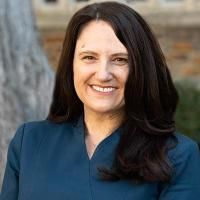Borrowing Personal Memories
Date
2015-01-01
Authors
Journal Title
Journal ISSN
Volume Title
Repository Usage Stats
views
downloads
Citation Stats
Abstract
© 2015 John Wiley & Sons, Ltd.The present investigation documents memory borrowing in college-age students, defined as the telling of others' autobiographical stories as if they are one's own. In both pilot and online surveys, most undergraduates admit to borrowing personal stories from others or using details from others' experiences to embellish their own retellings. These behaviors appear primarily motivated by a desire to permanently incorporate others' experiences into one's own autobiographical record (appropriation), but other reasons include to temporarily create a more coherent or engaging conversational exchange (social connection), simplify conveying somebody else's interesting experience (convenience), or make oneself look good (status enhancement). A substantial percentage of respondents expressed uncertainty as to whether an autobiographical experience actually belonged to them or to someone else, and most respondents have confronted somebody over ownership of a particular story. Documenting memory borrowing is important as the behavior has potential consequences for the creation of false memories.
Type
Department
Description
Provenance
Subjects
Citation
Permalink
Published Version (Please cite this version)
Publication Info
Brown, AS, K Croft Caderao, LM Fields and EJ Marsh (2015). Borrowing Personal Memories. Applied Cognitive Psychology, 29(3). pp. 471–477. 10.1002/acp.3130 Retrieved from https://hdl.handle.net/10161/10380.
This is constructed from limited available data and may be imprecise. To cite this article, please review & use the official citation provided by the journal.
Collections
Scholars@Duke

Elizabeth J. Marsh
Why do people sometimes erroneously think that Toronto is the capital of Canada or that raindrops are teardrop-shaped? How is it that a word or fact can be “just out of reach” and unavailable? What changes, if anything, when you read a novel or watch a movie that contradicts real life? Have you ever listened to a conversation only to realize that the speaker is telling your story as if it were their own personal memory? Why do some listeners fail to notice when a politician makes a blatantly incorrect statement? These questions may seem disparate on the surface, but they are related problems, and reflect my broad interests in learning and memory, and the processes that make memory accurate in some cases but erroneous in others. This work is strongly rooted in Cognitive Psychology, but also intersects with Social Psychology, Developmental Psychology, and Education.
Unless otherwise indicated, scholarly articles published by Duke faculty members are made available here with a CC-BY-NC (Creative Commons Attribution Non-Commercial) license, as enabled by the Duke Open Access Policy. If you wish to use the materials in ways not already permitted under CC-BY-NC, please consult the copyright owner. Other materials are made available here through the author’s grant of a non-exclusive license to make their work openly accessible.
